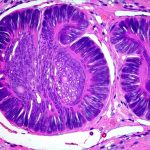The gut microbiome – often called our “second brain” – is increasingly recognized as central to overall health. Beyond just digestion, it profoundly impacts immunity, mental wellbeing, hormone balance, and even chronic disease risk. Many factors can disrupt this delicate ecosystem: stress, poor diet, antibiotic use, environmental toxins, and chronic illness are all common culprits. When the gut becomes compromised, leading to conditions like leaky gut or dysbiosis (an imbalance of gut bacteria), it can manifest in a wide range of symptoms, from bloating and fatigue to skin issues and autoimmune flares. Consequently, many people seek supplements as part of a broader gut-healing strategy. However, navigating the vast landscape of available products can be overwhelming and confusing.
It’s crucial to understand that supplements are rarely a quick fix. They are best used in conjunction with lifestyle changes like dietary modifications (reducing processed foods, increasing fiber intake), stress management techniques, and adequate sleep. Furthermore, what works for one person might not work for another, as gut health is highly individualized. This article aims to provide a comprehensive guide to understanding the different types of supplements that may support gut healing, how to choose them wisely, and factors to consider before adding them to your routine. It’s important to remember this information isn’t intended to replace professional medical advice; always consult with a healthcare practitioner before starting any new supplement regimen. If you struggle with navigating the system, learning how to advocate can be incredibly empowering.
Understanding Gut Health & Supplement Categories
A healthy gut is characterized by diversity – a wide range of beneficial bacteria thriving in balance. When this balance is disrupted, it can lead to inflammation and impaired function. Supplements targeting gut health generally fall into several categories: prebiotics, probiotics, digestive enzymes, L-glutamine, zinc carnosine, and gut repair formulas. Each plays a different role in supporting overall gut function. Prebiotics act as food for the beneficial bacteria already present in your gut, encouraging their growth and activity. Probiotics introduce live microorganisms to the gut, aiming to restore balance and improve microbial diversity. Digestive enzymes help break down food more efficiently, reducing digestive stress and improving nutrient absorption. L-glutamine is an amino acid that supports the integrity of the gut lining. Zinc carnosine has been shown to support mucosal healing in the stomach and intestines. Finally, gut repair formulas often combine multiple ingredients aimed at addressing various aspects of gut health.
The choice between these categories – or a combination thereof – depends on your specific needs and symptoms. For example, someone experiencing bloating and gas might benefit from digestive enzymes or prebiotics, while someone who has recently taken antibiotics might prioritize probiotics to repopulate their gut flora. It’s also important to consider the underlying cause of your gut issues; supplements are most effective when addressing a known imbalance or deficiency. Don’t fall into the trap of thinking more is always better; targeted supplementation based on individual needs yields the best results. A functional medicine approach, involving comprehensive testing and personalized recommendations, can be incredibly valuable in identifying the right supplement strategy. If you’ve overindulged, consider how to reset your gut after too much junk food.
Probiotics: Navigating the Microbial Maze
Probiotics are arguably the most well-known gut health supplements, but they’re not a one-size-fits-all solution. There’s an incredible variety of probiotic strains available, each with different properties and potential benefits. Common genera include Lactobacillus and Bifidobacterium, but within those genera exist countless species and strains. – Strain specificity is key: research suggests that the benefit comes from specific strains, not just the genus or species. For example, Lactobacillus rhamnosus GG has been extensively studied for its ability to support immune function and reduce diarrhea. – Look for CFUs (colony forming units): This indicates the number of live microorganisms in each dose. Higher CFU counts aren’t always better; consider the strain and your individual needs. – Consider shelf-stability: Some probiotics require refrigeration, while others are shelf-stable. Shelf-stable options can be more convenient but may have lower viability.
Choosing a probiotic involves careful consideration of factors beyond just the label. It’s important to select a reputable brand that provides third-party testing for potency and purity. Also, consider your specific health concerns; different strains may be more effective for different conditions. For instance, certain strains are better suited for supporting vaginal health, while others are more beneficial for improving digestion. Furthermore, probiotics can sometimes cause temporary digestive upset in some individuals, especially when starting a new regimen. Begin with a low dose and gradually increase as tolerated. Some people also benefit from rotating probiotic strains periodically to promote greater microbial diversity. Learning how to train your gut can help you build tolerance over time.
Prebiotics: Feeding Your Existing Gut Flora
Prebiotics are essentially the fuel that feeds your beneficial gut bacteria, helping them thrive and multiply. Unlike probiotics, which introduce new microorganisms, prebiotics support the ones you already have. Common prebiotic sources include inulin, fructooligosaccharides (FOS), galactooligosaccharides (GOS), and resistant starch. These are found naturally in foods like onions, garlic, leeks, asparagus, bananas, oats, and apples. However, supplements can provide a more concentrated dose.
Prebiotics work by selectively promoting the growth of beneficial bacteria in the colon. This leads to several health benefits, including improved digestion, enhanced immune function, and increased nutrient absorption. However, it’s important to note that prebiotics can also cause gas and bloating in some individuals, especially those with a sensitive gut. – Start slowly: Begin with a low dose of prebiotic supplements and gradually increase as tolerated. – Combine with probiotics: Prebiotics and probiotics often work synergistically; pairing them can enhance their effectiveness. – Choose the right type: Different prebiotics support different types of bacteria. Consider your individual needs when selecting a prebiotic supplement. If you struggle with anxiety around eating, exploring how to handle fear can be helpful.
L-Glutamine & Gut Repair Strategies
L-glutamine is an amino acid that plays a crucial role in maintaining the integrity of the gut lining. It’s naturally produced by the body, but levels can be depleted due to stress, illness, or poor diet. Supplementing with L-glutamine may help repair damaged intestinal cells and reduce inflammation. This can be particularly beneficial for individuals with leaky gut syndrome.
Beyond L-glutamine, several other supplements can support gut repair. Zinc carnosine has been shown to protect the stomach lining and promote healing of ulcers. Aloe vera juice can soothe inflamed tissues and reduce digestive discomfort. Marshmallow root is a demulcent herb that coats and protects the intestinal lining. – Look for quality: Choose L-glutamine supplements from reputable brands that provide third-party testing. – Consider combining with other gut-healing nutrients: Combining L-glutamine with probiotics, prebiotics, and anti-inflammatory compounds can enhance its effectiveness. – Address underlying causes: Gut repair is most effective when combined with lifestyle changes that address the root cause of gut damage. This might include reducing stress, improving diet, and eliminating food sensitivities. Maintaining gut health under stress can be challenging but crucial.
It’s vital to remember that finding the right gut healing supplements is a process—one requiring patience, self-awareness, and potentially guidance from a qualified healthcare professional. Don’t expect overnight miracles; consistency and a holistic approach are key to long-term success. If travel impacts your digestive system, learning how to handle travel can provide peace of mind. Finally, consider looking into supplements for gut barrier function to support your healing journey.


















